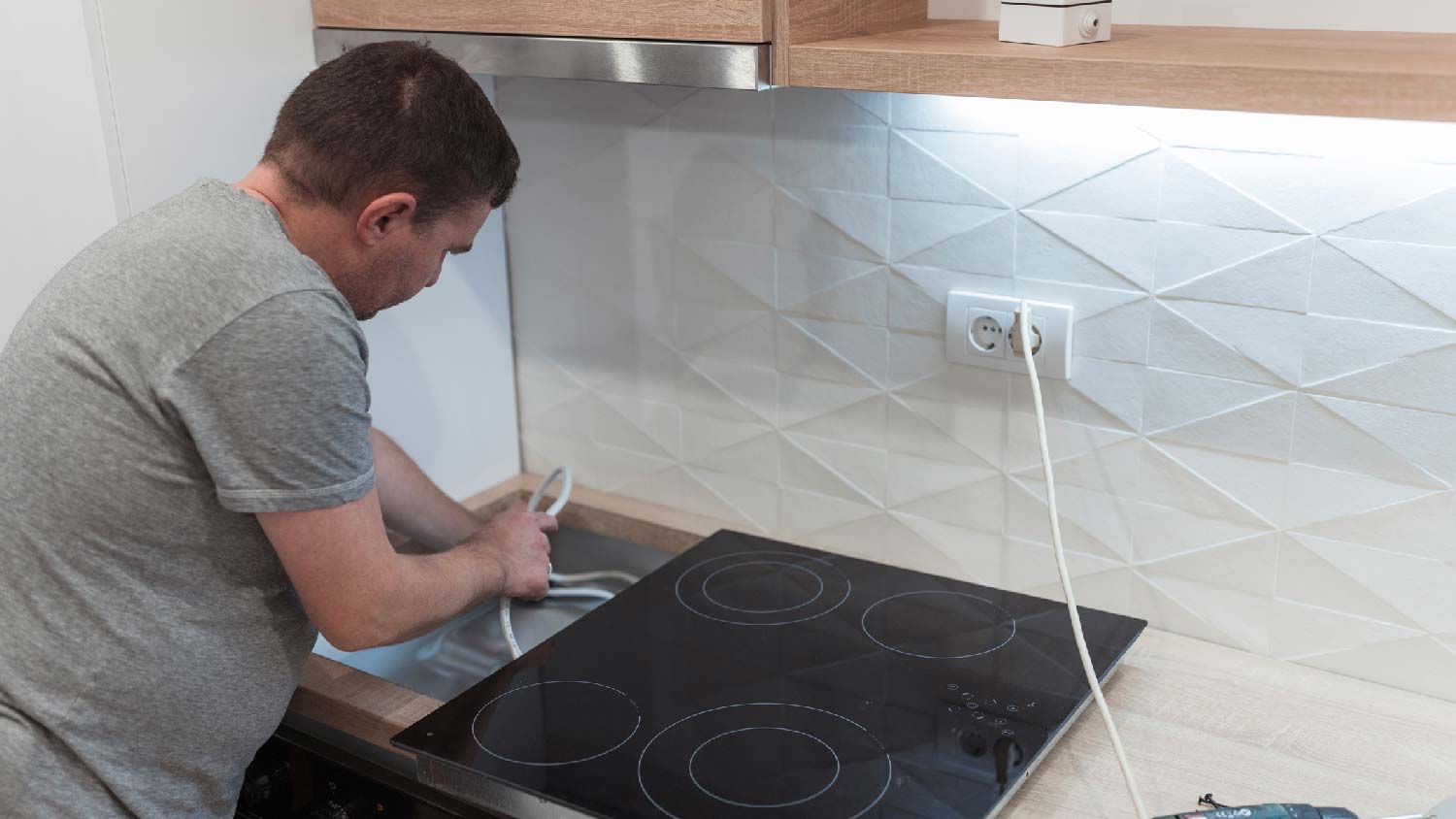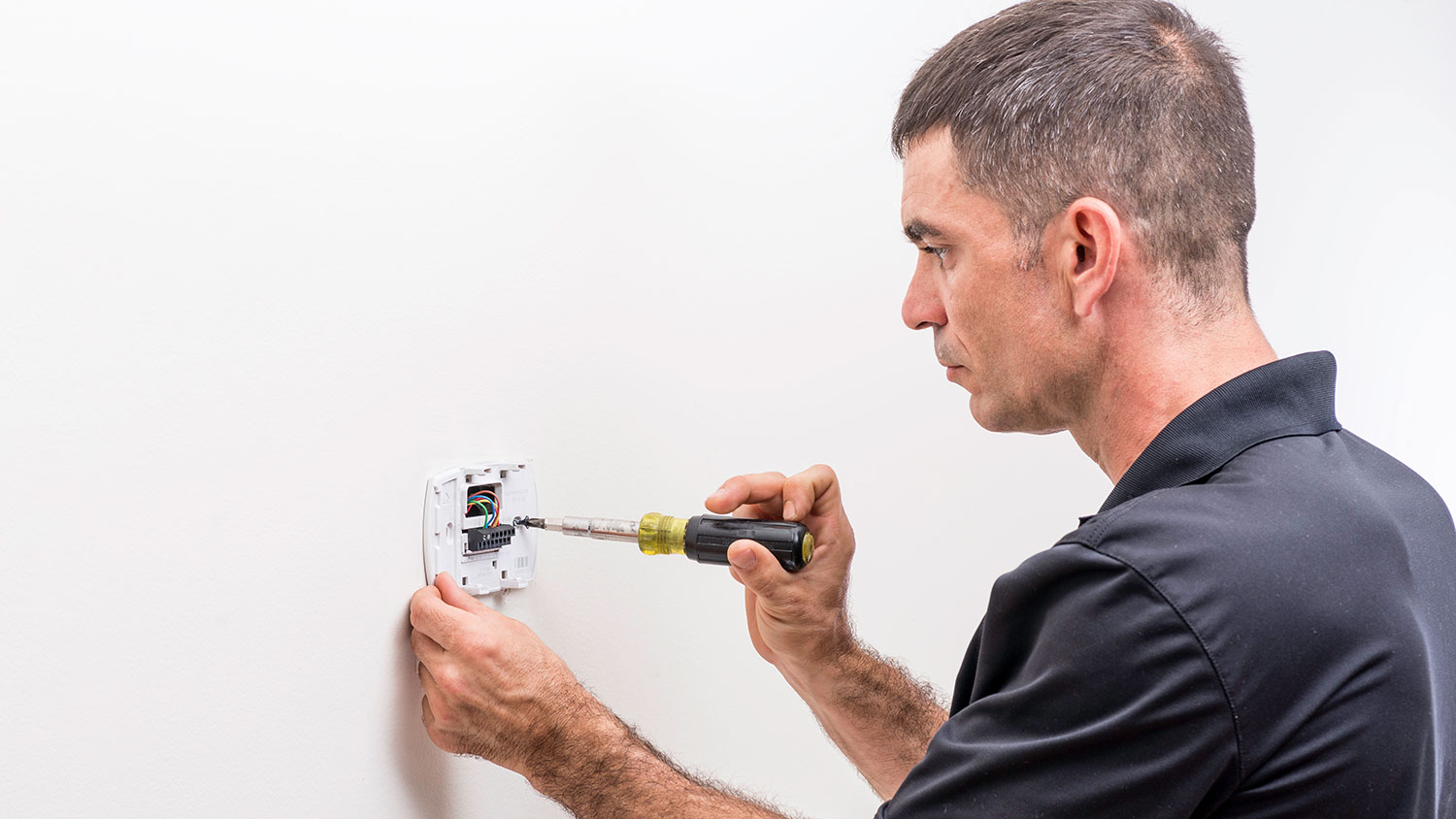
Discover how much boiler replacement costs, exploring cost factors like the boiler type, size, brand, and local labor rates.
A licensed plumber installs gas lines safely with permits and insurance


Gas lines are installed by licensed plumbers who pull permits and follow local laws, ensuring work meets safety and code requirements from the start.
Gas line installation costs between $260 and $820, with an average of $540, depending on project details
Final price varies by materials used, labor needs, permit fees, and the pipe type selected for the run.
Hiring a pro minimizes risks from highly flammable gas, leaks, explosions, and carbon monoxide by following proven safety protocols.
Get at least three quotes before hiring, and schedule annual inspections to keep your system safe and in good working order.
This article was created using automation technology and thoroughly fact-checked and edited by HomeAdvisor Editor Ryan Noonan.
If you are asking who installs gas lines, the answer is a licensed plumber. These pros install lines and gas valves, maintain licensing and insurance per local laws, and pull permits before work begins. Natural gas is highly flammable, so mishandling can cause explosions or carbon monoxide leaks.
Get at least three quotes before you decide who to hire. Plumbers can install natural gas or propane lines—just specify your fuel type during the hiring process. You can also schedule annual inspections with a plumber or your local gas company to catch hidden issues and prevent early replacement.
Installing gas lines is best left to a licensed plumber who follows permit and safety protocols. Pros plan routing, choose appropriate materials, and complete inspections to minimize risk. Professional installation supports safe appliance operation and long service life.
When hiring a local plumber, you can expect them to:
Shut off the supply and ensure proper ventilation during work
Determine safe routing and select the correct materials
Dig and backfill trenches for underground gas runs
Connect lines and verify system integrity with inspections
Check appliance and home connections for safe operation
Install propane gas lines when specified and carry insurance
If you’re unsure about handling gas line work yourself or want to ensure everything is up to code, consider hiring a local plumber to guarantee the job is done safely and professionally.
Local gas companies can inspect your gas lines annually to detect leaks or other hazards. These safety checks help detect hidden issues and offer peace of mind.
For installation and permitting, you still need a licensed plumber who handles permits and complies with local laws. Use the gas company for routine inspections and a plumber for the actual installation to keep responsibilities clear and safety prioritized.
Plumbers follow a careful step-by-step process to install gas lines safely and in accordance with local codes. Here’s a look at their process:
Pull the required permits
Plan the route and choose the appropriate gas line material
Shut off the gas supply and ensure proper ventilation
Dig a trench for any underground sections
Connect the lines and fittings
Inspect all connections and the system for safety
Fill in the trench
Inspect appliance and home connections
Assess existing natural gas pipes for safety
Gas line installation costs range from $270 to $940, with an average of $600. Your price changes based on the amount of material needed, the pipe type, labor, and permit fees. Iron and galvanized steel are the most costly materials, while PVC is more budget-friendly. Clarify your scope and materials when comparing bids to keep estimates consistent.
From average costs to expert advice, get all the answers you need to get your job done.

Discover how much boiler replacement costs, exploring cost factors like the boiler type, size, brand, and local labor rates.

Use this guide to budget for appliance refinishing costs based on factors such as appliance type, labor, refinishing type, materials, and more.

Budget for gas line installation costs based on factors such as gas line type, pipe material, project type, permits, potential repairs, labor, and more.

Who fixes electric stoves? See who to call—appliance repair pro, electrician, or handyperson—and compare hourly rates to get your stove working.

Find out who fixes range hoods and when to call an appliance technician, HVAC pro, or electrician. Learn repair vs. replacement costs and next steps.

Who to call to replace a thermostat? Learn whether to hire a thermostat installer, HVAC pro, or electrician and see how pros handle the job